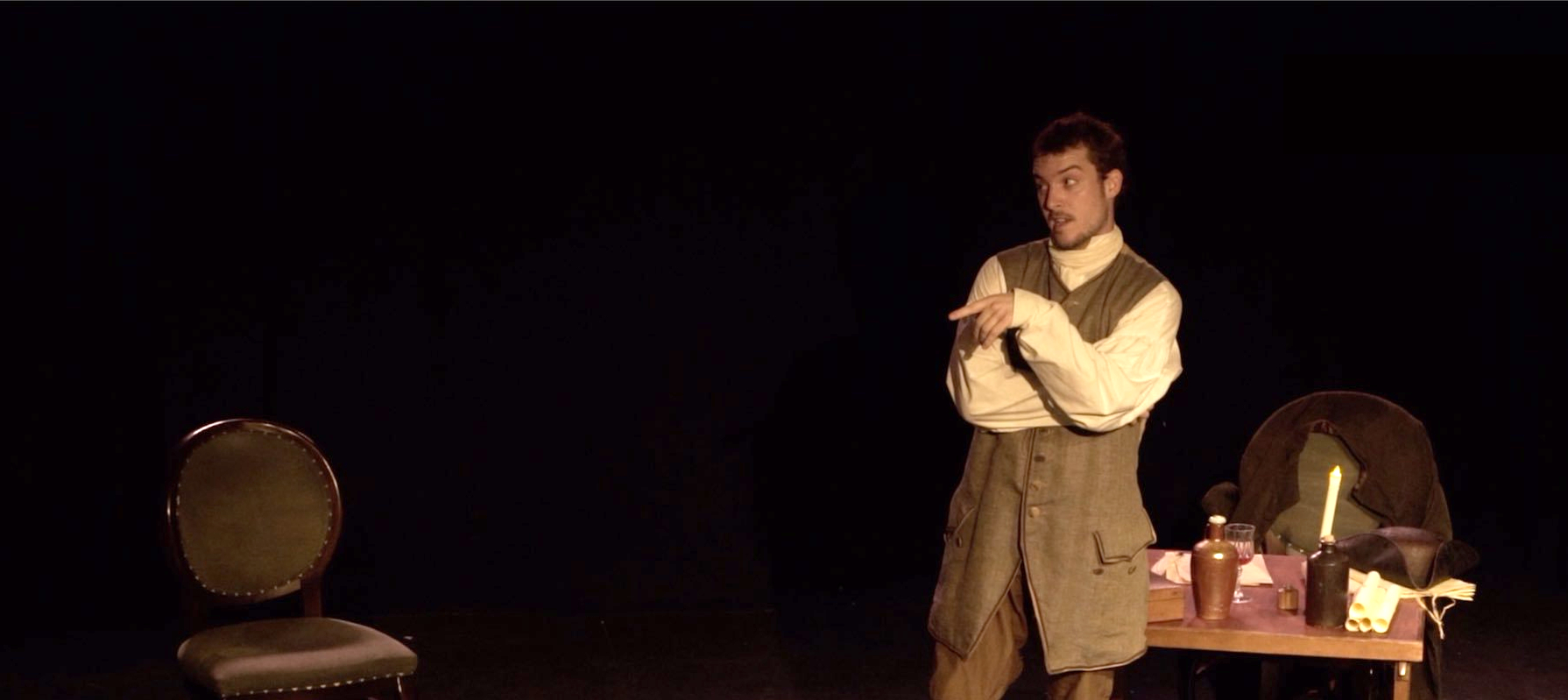A man in period dress bursts in. ‘They just set fire to the theatre!’, he exclaims. Which theatre he means, and why it’s ablaze, and how this man’s responsible, are all things you’ll learn during the ensuing confessional monologue; it adds up to an entertaining canter through a footnote to Shakespearean history, and a bittersweet study in how arrogance can breed self-destruction.
It takes big liberties with certain details, but The Legacy of William Ireland is based on a remarkable real-life story. In 1796, the Theatre Royal in Drury Lane staged a ‘lost’ work of Shakespeare: a play so bad that it was instantly denounced as a forgery, never to be performed in public again. The fraudster was the William Ireland of this play’s title, who had managed to hoodwink the venerable James Boswell into vouching for the script’s authenticity. We now meet William on the night the deception crashes down… for although he’d fooled the ageing Boswell, he couldn’t fool the London mob.
Playing William, Charlie Jack delivers a vigorous, fluid performance, matching the urgency and desperation of the situation he finds himself in. Jack also slips into other roles, most notably William’s father Samuel – a half-comic, half-haunting figure, the very essence of self-indulgent misery and malevolent disdain. In this fictionalised version of the story, Samuel laments on his deathbed that his collection of antique documents lacks anything in Shakespeare’s hand… unwittingly setting William on a path of deception, which ends in the burning Theatre Royal.
But it’s William himself who we get to know best – and Tim Connery’s script paints a vivid picture of a man who’ll both enthral and repel you. His academic arrogance is as misplaced as it’s entertaining: he deems himself the ‘Protector of English Literature’, yet his attempts at love poems are so comically bad his suitors return them. Jack ably captures a strange mix of self-belief wrestling with fear, and it’s hard not to sympathise as he grows enmeshed in his lie – swigging wine directly from the flagon as he describes a harmless-seeming fiction which span wildly out of control.
Though the action takes place two centuries after Shakespeare, there’s a faint Elizabethan ring to Connery’s writing, and while some of his scenes are farcical they never feel any less than real. The 45-minute running-time is the right one for this story, a specific slice of history that’s best kept short and sharp. All the same, a few details feel rushed at the beginning: why did William feel such an urge to please his evidently-hated father? The storytelling’s also very ordered and logical, progressing sequentially from one event to the next, and perhaps a little variety or unreliability in the narration could add a further layer of interest and intrigue.
They may have been notorious in their day, but over time the Shakespeare forgeries have slipped back into obscurity – and so, in a sense, this play is itself the legacy of William Ireland. The Ireland portrayed would doubtless disapprove of how little it acknowledges his greatness. But it’s a sympathetic story, told with humour and heart… and a warning to all of us that there’s no such thing as a harmless deception.
